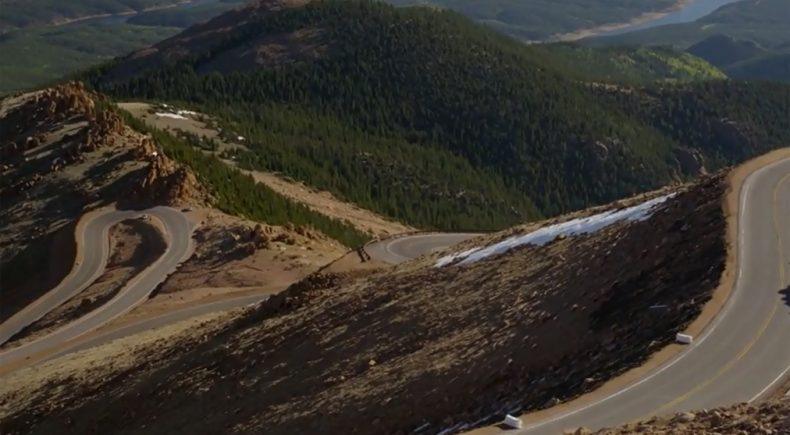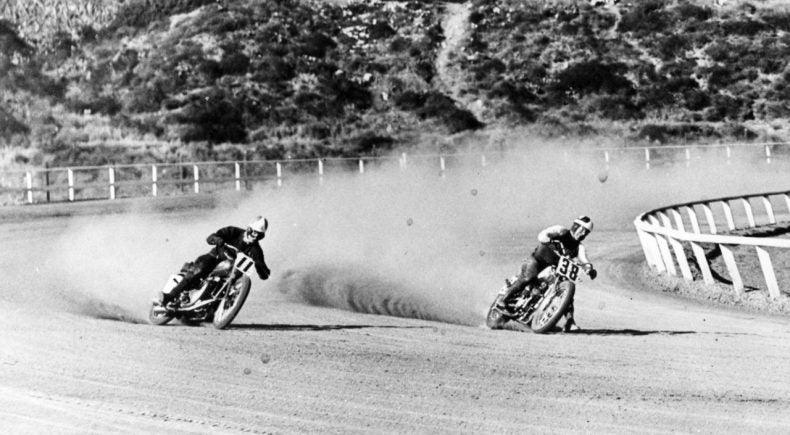 Max Duff is the Founder of Death Collective, a motorcycle lifestyle movement based out of Australia built around using bikes to bring people together and having fun. Together, we built Pamela, a Triumph Scrambler built for FUNction. In the interview, he discusses how the death of two friends inspired him to found Death Collective as a creative outlet, his thoughts on what brings motorcyclists together, and customizing his own bike as a form of self-expression.
Max Duff is the Founder of Death Collective, a motorcycle lifestyle movement based out of Australia built around using bikes to bring people together and having fun. Together, we built Pamela, a Triumph Scrambler built for FUNction. In the interview, he discusses how the death of two friends inspired him to found Death Collective as a creative outlet, his thoughts on what brings motorcyclists together, and customizing his own bike as a form of self-expression.
British Customs: How did Death Collective start?
Max Duff: I’m a pretty chill guy, so the first question people usually ask is "What’s up with the dark name? The answer to that question dates back to November 2011, and it’s the reason why Death Collective exists.
I was woken up in the early hours of the morning to the news that my friend Dane Searls — known for changing BMX forever after jumping the world's biggest dirt jumps — had been in accident and was in intensive care. For the next few days I was alongside Dane’s family and closest friends (some I hadn’t seen for years) as we waited and hoped for some good news. On November 25, we were told that his life support would be switched off. Dane died at 4:19am that morning.
Two months later, I received another phone call. My childhood friend Adam Foster had been involved in a car accident, and like Dane, was in intensive care. We raced up to the Brisbane hospital to see Adam and support his family. We were later told that his life support would be turned off.
Two of my friends had died in two months.
Their funerals would follow and I would witness hundreds of friends and family come to pay their respect to these great men. And it was this coming together that really stuck with me.
I eventually came to terms with Dane’s and Adam’s passing, however I couldn’t stop thinking about one thing: it took their deaths to bring us all together again. Rather than wait for another funeral, I decided to create something that we could use as an excuse to get together more often. The focus would be on having fun and would revolve around one common interest — motorcycles. Death Collective was born.

BC: Is Death Collective a motorcycle club then, or a movement?
MD: Most definitely a movement. It’s not like a cliquey club at all, it’s literally just a way of life. A common understanding of “screw all the bullshit and have some fun.” Personally, I hate the whole biker stereotype of how you must ride a certain bike and you have to be a certain kind of person. I want to break that down.
"The best riders in the world are the ones having the most fun."
BC: What is that way of life like?
MD: It’s different for every person. Some guys like going fast. Others like doing huge wheelies. For me, it’s all about having fun with my friends. It’s basically an escape from normal life — a reset button on reality. I spend so much time confined indoors due to work and motorcycles allow me to get outside and be immersed in my surroundings. Everything looks, smells, and sounds better on a motorcycle. As soon as the helmet goes on, you’re in a different world completely.
The only thing I’ve found that comes close to this feeling of complete immersion is surfing and snowboarding. The biggest difference, however, is the sense of freedom and pride that comes with owning a motorcycle.
BC: What do you think brings motorcyclists together in such a unique and powerful way?
MD: The common interest. On any given day we will have lawyers, doctors, truckers, builders, and business owners — but none of that crap matters to anyone. There are no expectations: you don’t have to be a certain type of guy and no one gives a shit about how much money you make; riders just bond. As long as you’re out there, that’s all that matters. I believe that the greatest thing modern motorcycle culture provides is a place to belong.

BC: What is it like to have that smaller community within the greater motorcycle community?
"I never would have met most of my friends if it wasn’t for riding. And that circle of friends constantly grows."
MD: I never would have met most of my friends if it wasn’t for riding. And that circle of friends constantly grows. I’m always looking to explore new roads and meet new riders.
BC: What has it meant to you to customize your own bike?
MD: I’m a creative person, so for me personally, it’s a chance to create something that reflects who I am. It’s a really rewarding feeling. I guess since I’m being interviewed I have to be perfectly honest: what got me into design was this video game called Motocross Madness. I would go in and change all the bikes and create whatever I wanted and ride it in the game. Even as a young teenager, it was rewarding to be able to see something in your head come to life, and to have someone else see it and get it. Nearly 15 years later I’m still doing the same thing, but on real bikes. Just like having a reason for riding, everyone has a different outlook on customizing motorcycles. For me, it’s about creating something that I can put my signature on and make mine.
BC: How has your experience as a rider improved by working on your own bike?
MD: It’s massive. Bikes aren’t like cars: if it breaks down, it’s extra important you know what’s going on, and that you’re aware of what state it’s in. When you get to work on a bike you get to know every part of it. You’re more connected to it. When you hear a little rattle, you know it’s this or that. It becomes an extension of your body. If you hop on someone else’s bike that you haven’t worked on, it feels different. Wrenching inspires a different kind of confidence in both you and your bike.




Leave a comment
All comments are moderated before being published.
This site is protected by hCaptcha and the hCaptcha Privacy Policy and Terms of Service apply.